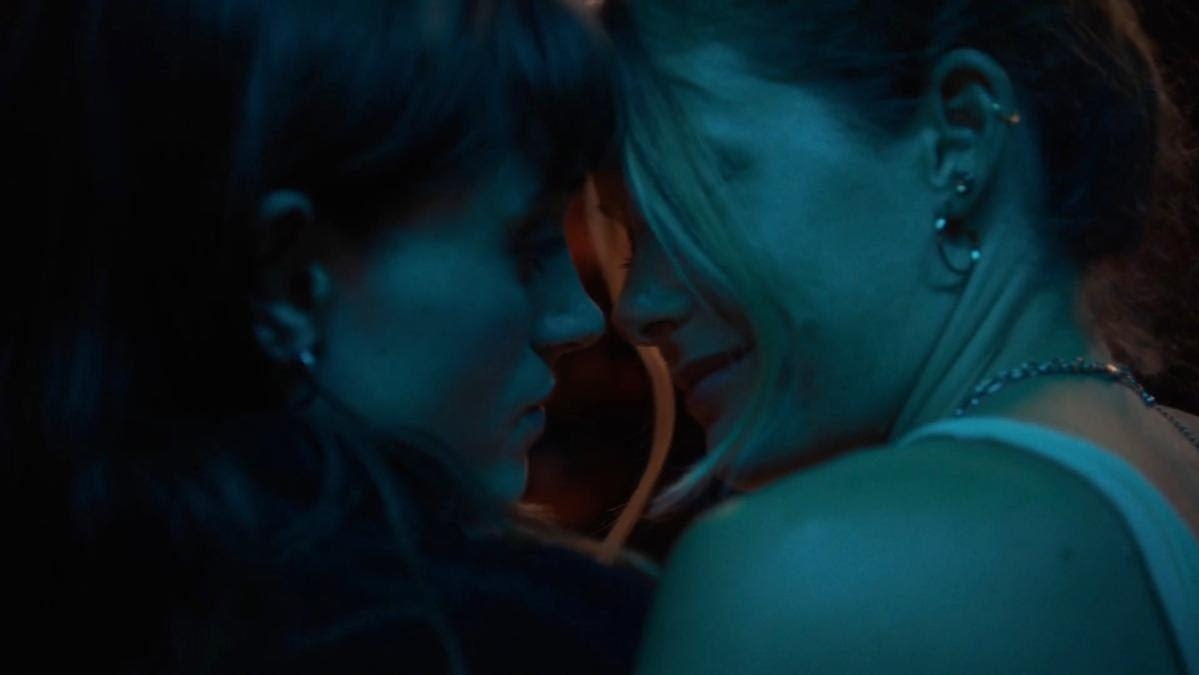Chestnut review: A forgettable slice-of-life film for the Sally Rooney set
Stranger Things' Natalia Dyer gives her all to a bisexual love triangle that doesn't quite hit the mark

At some point in their journey, every queer woman is forced to learn a particularly tough lesson: If a girl ever tells you how much she loves kissing her friends when she’s drunk, you run. Just run! There’s nothing for you there but pain, angst, and heartbreak, no matter how fun it may seem at the outset. If you’re lucky enough not to have experienced this right of passage for yourself, there’s a lot of art (from just the past year!) illustrating how agonizing—and how universal—this can be. Recently, newly out women could wrap Chappell Roan’s “Good Luck, Babe” and Reneé Rapp’s “Pretty Girls” around themselves like a protective charm. Now, thanks to Stranger Things’ Natalia Dyer, they can add Chestnut to the chain.
The feature-length debut from writer-director Jac Cron, Chestnut plays like a Philadelphia-fied version of a Sally Rooney novel. All the ingredients are there: Dyer plays a banged, beautiful, but reclusive finance-major-turned-poet named Annie, wiling away one last summer on the East Coast before moving to California for her first big post-grad job in the fall. She, of course, lives in a gorgeous Old City apartment on Chestnut Street (from which the film takes its name) with beautiful things that still can’t cure the ennui she’s contractually forced to endure. On a night out to drink red wine alone, she’s spotted across the bar by a couple that really digs her vibe (literally) and invites her back to one of their apartments to hang out. As the film progresses, Annie is drawn deeper into their obviously toxic dynamic, one that will have viewers—especially ones that have survived their own debilitating situationships—quietly screaming “no” as they watch her make one wrong choice after another.
For this sect—the messy queer “friendship” survivors—Chestnut has the potential to be a new, slice-of-life favorite. Annie is pretty underwritten—her main personality trait is “restrained”—but the emotions Dyer is able to infuse into the character’s searching looks and furrowed brow are very real. Anyone who has been an Annie in their own lives will feel for her as she clings onto the gossamer tie she has to each half of the couple—an equally reserved man named Danny (Danny Ramirez) and, more importantly, a mercurial woman named Tyler (Rachel Keller)—because just being in their orbit makes her feel bigger than herself. In soft and very deliberate bisexual lighting, Cron captures the liminal space between college and adulthood in a way that feels emotionally closer to looking through an old photo album than watching a feature film.
But for anyone who doesn’t have these particular wealthy, white photos in their camera roll, Chestnut may fall pretty flat. Love them or hate them, the key to Sally Rooney’s semi-plotless novels is that every character is given such intense interiority that otherwise meaningless interactions feel like life-or-death encounters. That’s not the case here. Despite the actors’ best efforts, they can never quite overcome a script that simply doesn’t have anything new to add to the conversation.
Take Tyler, for example. The clearly closeted love interest’s seasonal affection for Annie and her persistent need for attention could have served as a productive study of the effects of compulsory heterosexuality, but she’s instead reduced to an unknowable vessel for Annie to project her own confusion onto. Danny, Tyler’s downtrodden lap dog, could have been an even more interesting character. Why does he stay? What is he getting out of this dynamic? We never know. Even Annie could have used a second or third pass. We learn a bit too late that her pervasive sadness was caused by a past family tragedy, and a phone call with her father that could have been salient instead reads as an expositive afterthought.
The crux of the problem with Chestnut can be summed up by a cardinal sin it commits about 30 minutes in. During one of their many nights out, we drop in on the trio in the middle of a heated argument about whether Sofia Coppola’s Lost In Translation is “a near perfect film” or “trite as fuck.” Whichever it is, it’s better than Chestnut, a comparison the movie can’t shake as it delves into its own exploration of disconnection and desire for the remainder of its runtime. Chestnut contains the seed of something good, but Cron has a little more growing to do before that tree bears fruit.